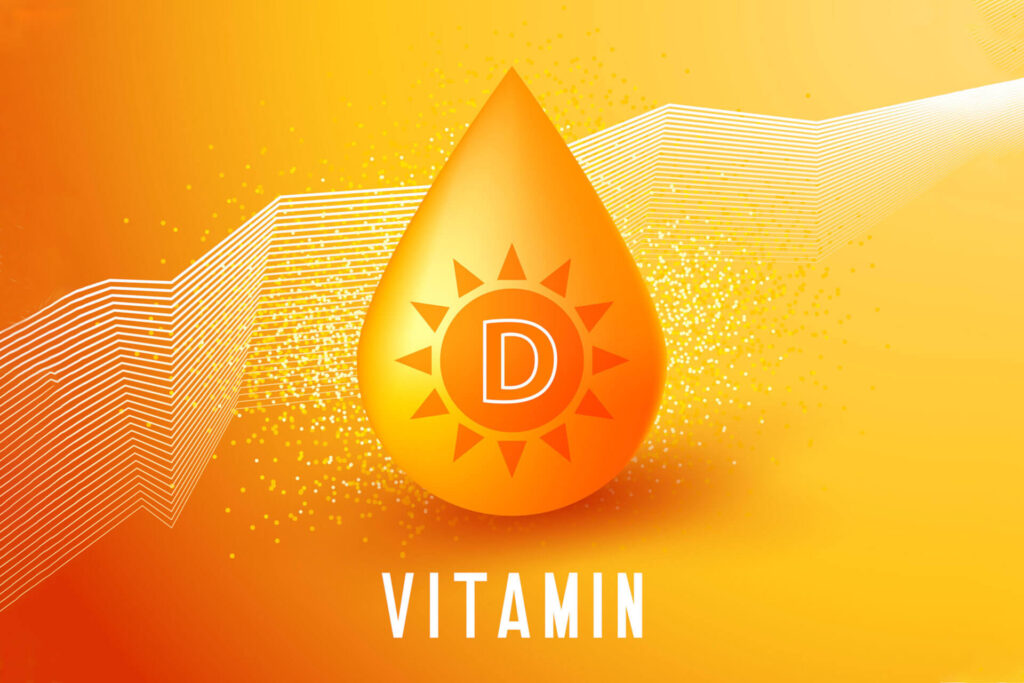Vitamin D does more than protect bone, muscle, and heart health. Vitamin D is also neuroprotective, and regulates many genes vital for brain function. To maximize the benefits vitamin D offers, we recommend Hi-Po Emulsi D3™, a liquid vitamin D supplement.
Hi-Po Emulsi D3™
Hi-Po Emulsi D3™ is a concentrated, easily-mixable formula that uses only naturally derived ingredients without any preservatives or synthetic additives. It’s also highly bioavailable, meaning you’ll absorb more of it once it’s introduced to your body. Bioavailability is important, because many people don’t get the adequate amount of vitamin D when taking vitamin D in pill or powder form.
You can mix a drop of Hi-Po Emulsi D3™ in your morning smoothie or, because it has a pleasant taste, directly under your tongue. One drop of Hi-Po Emulsi D3™ produces 2,000 IU, roughly three times your recommended minimum dose of vitamin D. In the Pacific NW we recommend 2,000-4,000 IU/day to maintain adequate vitamin D levels.
Here are a few ways vitamin D improves brain health:
Vitamin D and Nervous System Development
Vitamin D is formed in your epithelial cells, a type of cell that lines your body’s surfaces. Epithelial cells are found in your skin and other organs, blood vessels, and urinary tract.
Vitamin D is commonly known for regulating your calcium level and bone metabolism. However, your vitamin D is also associated with neurotrophin production.
Neurotrophins regulate the development, maintenance, and function of your nervous systems. When your body gets enough vitamin D, it helps your neurotrophins do their jobs. When you’re not getting enough vitamin D, research suggests you may be at increased risk of central nervous system (CNS) diseases, including multiple sclerosis and schizophrenia.
In addition to having a strong connection with your CNS, vitamin D also has receptors in key parts of your brain that impact your:
- Memory and learning abilities
- Weight loss and glucose
- Hormone regulation and mental health
- Sensory and motor signals
Memory and Learning Abilities
Research suggests that a vitamin D deficiency can reduce your hippocampal volume. Your hippocampus plays a major role in memory and learning. A smaller hippocampus can influence your ability to remember things and form new memories. Hippocampal reduction particularly affects your spatial memory, or your ability to remember directions or locations.
The same study suggests vitamin D impacts your brain’s perineuronal nets. These nets stabilize communication between your neurons, helping them learn and recall information.
Weight Loss and Glucose
People usually don’t connect weight and brain health, but the two share some correlations.
Vitamin D has receptors on your hypothalamus, the part of your brain that controls glucose levels and body weight. Studies have shown that vitamin D deficiencies are more prevalent in people experiencing obesity or have been diagnosed with type 2 diabetes. When you’re ingesting the recommended amount of vitamin D, it helps your hypothalamus regulate your glucose and energy levels.
Hormone Regulation and Mental Health
Vitamin D plays a key role in adrenaline regulation, dopamine production, and serotonin depletion.
Adrenaline increases your heart rate, boosts your energy supplies, and raises your blood pressure. Too much adrenaline can trigger your body’s fight, flight, or freeze response, which can also lead to increased anxiety. Vitamin D helps keep your adrenaline in check, so that your anxiety becomes more manageable.
Vitamin D also helps manage your dopamine and serotonin, two of your body’s “happy hormones.” When your body is depleted of these, you may find yourself sluggish or depressed. Because Hi-Po Emulsi D3™ is liquid vitamin D that’s highly bioavailable, adding it to your daily regimen can help keep your vitamin D levels—and your mental state—in check.
Sensory and Motor Signals
Vitamin D has receptors in your thalamus, which serves multiple functions in your body. It helps relay information to your visual and auditory systems, and is also connected to your pleasure and pain centers. Your thalamus also helps regulate your consciousness and alertness.
Simply put, your body will have a difficult time working properly if your thalamus isn’t doing its job. It needs to be firing on all your proverbial cylinders, which it can’t do without a proper amount of vitamin D.
Liquid Vitamin D
Vitamin D plays a key role in many of your body’s most crucial functions. It’s no wonder why you may be feeling down when not getting enough of it.
If you’re taking vitamin D supplements in pill or powder form, your body might not absorb what it needs. Check to see if what you’re taking is highly bioavailable. If it’s not, try taking Hi-Po Emulsi D3™. Just a drop or two of this liquid vitamin D supplement will give you all the “sunshine vitamin” you need.
You can order Hi-Po Emulsi D3™ from FullScript to ensure the highest quality product: https://us.fullscript.com/welcome/jwendling.
If you’re interested in learning more about Hi-Po Emulsi D3™, send us a message.
In health,
Dr. Jessica Wendling
ALWAYS consult your physician before starting any supplements or drugs.
*These statements have not been evaluated by the Food and Drug Administration. The product(s) mentioned in this article are not intended to diagnose, treat, cure, or prevent any disease. The information in this article is not intended to replace any recommendations or relationship with your physician.
Source List:
- https://pubmed.ncbi.nlm.nih.gov/23744412
- https://www.ncbi.nlm.nih.gov/pmc/articles/PMC2758233/
- https://pubmed.ncbi.nlm.nih.gov/30251770/
- https://pubmed.ncbi.nlm.nih.gov/30712221/
- https://www.ncbi.nlm.nih.gov/pmc/articles/PMC5001188/
- https://www.ncbi.nlm.nih.gov/pmc/articles/PMC6071442/
- https://www.endocrine.org/patient-engagement/endocrine-library/hormones-and-endocrine-function/endocrine-related-organs-and-hormones
- https://pubmed.ncbi.nlm.nih.gov/2847240/
- https://www.ncbi.nlm.nih.gov/books/NBK542184




